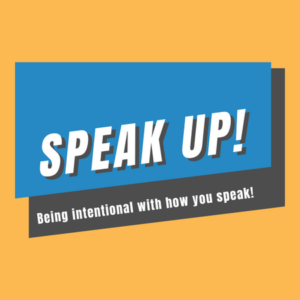 Advocating involves speaking up. There are many ways to advocate for change. I really enjoy the visual model of the social change wheel as it illustrates that there are multiple ways to work towards social change. The following areas are listed—
Advocating involves speaking up. There are many ways to advocate for change. I really enjoy the visual model of the social change wheel as it illustrates that there are multiple ways to work towards social change. The following areas are listed—
- Socially responsible daily behavior
- Deliberate and reflective dialogue
- Community organizing
- Advocacy and raising awareness
- Community building
- Social innovation and enterprise
- Fundraising, giving, and philanthropy
- Community and economic development
- Protests and demonstrations
- Voting and formal political activities
- Mutual aid and information association
- Volunteering and direct service
Being intentional about how you advocate can help you make a difference in areas that best utilize your interests and abilities.
As with other areas of life, it is important to have a balance. Too little time spend advocating vs. too much can negatively impact your emotional state. Making a difference in meaningful ways, by taking intentional steps in alignment with your values can feel so rewarding. Unfortunately, sometimes fear can get in the way of speaking up.
Did you know that the fear of public speaking impacts approximately 75% of adults?
This fear is so common, in fact, that it is feared more than death (which is approximately 20%).
Those who experience specific phobias and social anxiety are particularly impacted by public-speaking anxiety.
Common fears include the following:
What if my brain freezes (and I forget my words, there is an uncomfortable silence, my delivery is not “perfect”, I say or do something embarrassing, etc.)?
What if my voice shakes?
Common body responses include but are not limited to accelerated heartbeat, sweating, trembling or shaking, nausea, dizziness, light-headedness, and feelings of panic.
It is important to speak up, even if your voice shakes! Since avoidance can reinforce fear, working with underlying issues with a therapist such as social anxiety, panic and anxiety symptoms, lack of self-confidence, fears of judgment, and perfectionism can help.
Learning and practicing relaxation strategies can manage the body’s physiological stress response. Working with cognitive distortions such as catastrophic thinking can help change how we feel. Rehearsal strategies such as practicing without memorizing and using recovery strategies in response to feared outcomes can help increase confidence.
Often the things that we worry about most are not obviously observable to others. By gaining increased control over the areas that are feared, one can feel more empowered and can better advocate for themselves and others.
Your voice is powerful and what you have to say matters!
We’re Here to help
Our wellness experts will be happy to take care of you. You can CLICK HERE to schedule an appointment now or call (612)223-8898.
Meet Clinicians
We’re united by our commitment to providing effective, relevant, and innovative mental health support at all stages of your journey. Click Here to find out more about who we are, where we come from, and how we live out CARE’s mission every day.
The professionals at CARE are actively collecting and creating resources to help with what you need. We’re Here for You.



